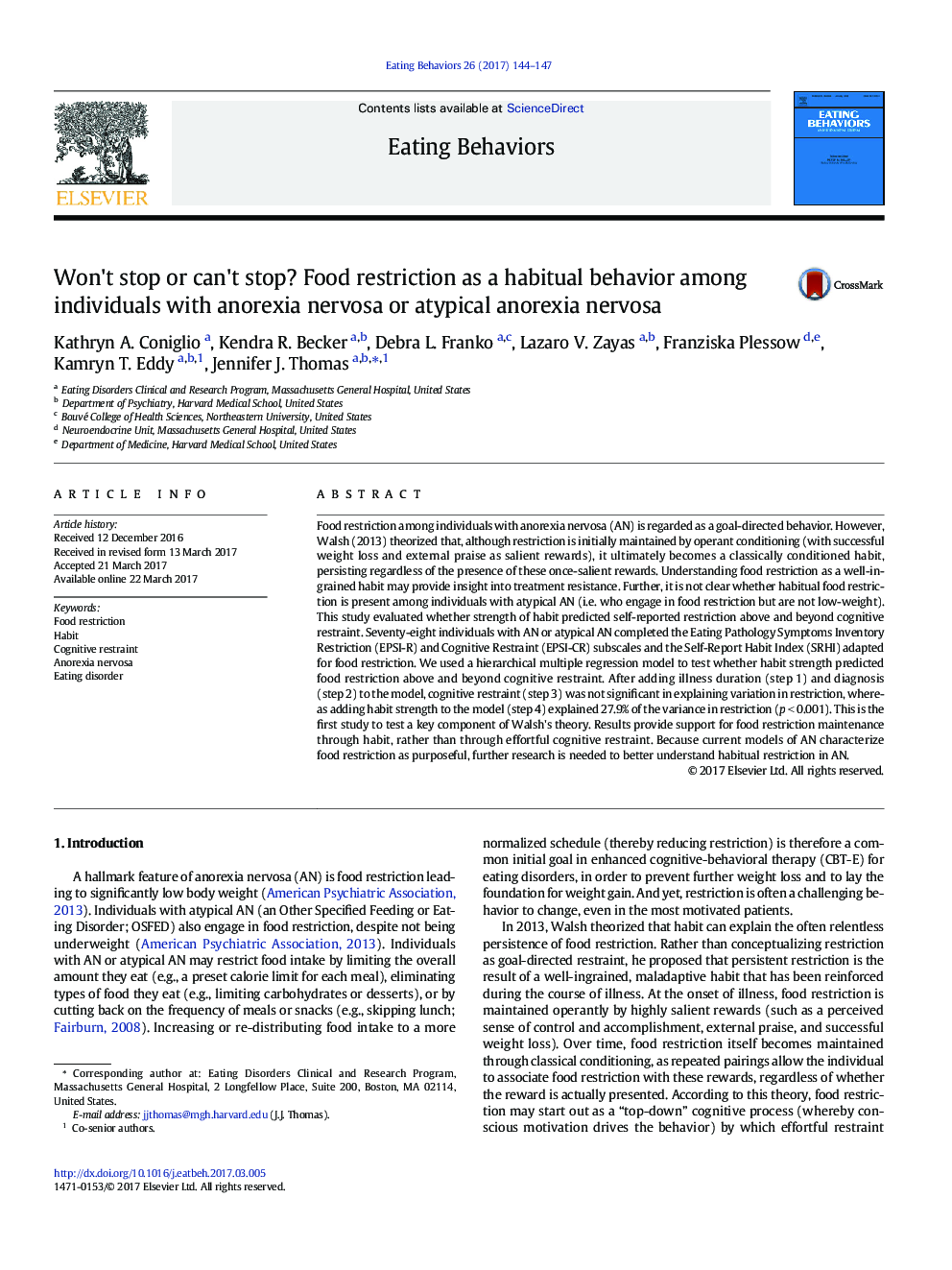| کد مقاله | کد نشریه | سال انتشار | مقاله انگلیسی | نسخه تمام متن |
|---|---|---|---|---|
| 5038810 | 1472877 | 2017 | 4 صفحه PDF | دانلود رایگان |

- Food restriction is better explained by habit learning than by effortful restraint.
- Habitual food restriction is strongly associated with clinical impairment.
- Habit reversal may be an important treatment component for AN and atypical AN.
Food restriction among individuals with anorexia nervosa (AN) is regarded as a goal-directed behavior. However, Walsh (2013) theorized that, although restriction is initially maintained by operant conditioning (with successful weight loss and external praise as salient rewards), it ultimately becomes a classically conditioned habit, persisting regardless of the presence of these once-salient rewards. Understanding food restriction as a well-ingrained habit may provide insight into treatment resistance. Further, it is not clear whether habitual food restriction is present among individuals with atypical AN (i.e. who engage in food restriction but are not low-weight). This study evaluated whether strength of habit predicted self-reported restriction above and beyond cognitive restraint. Seventy-eight individuals with AN or atypical AN completed the Eating Pathology Symptoms Inventory Restriction (EPSI-R) and Cognitive Restraint (EPSI-CR) subscales and the Self-Report Habit Index (SRHI) adapted for food restriction. We used a hierarchical multiple regression model to test whether habit strength predicted food restriction above and beyond cognitive restraint. After adding illness duration (step 1) and diagnosis (step 2) to the model, cognitive restraint (step 3) was not significant in explaining variation in restriction, whereas adding habit strength to the model (step 4) explained 27.9% of the variance in restriction (p < 0.001). This is the first study to test a key component of Walsh's theory. Results provide support for food restriction maintenance through habit, rather than through effortful cognitive restraint. Because current models of AN characterize food restriction as purposeful, further research is needed to better understand habitual restriction in AN.
Journal: Eating Behaviors - Volume 26, August 2017, Pages 144-147